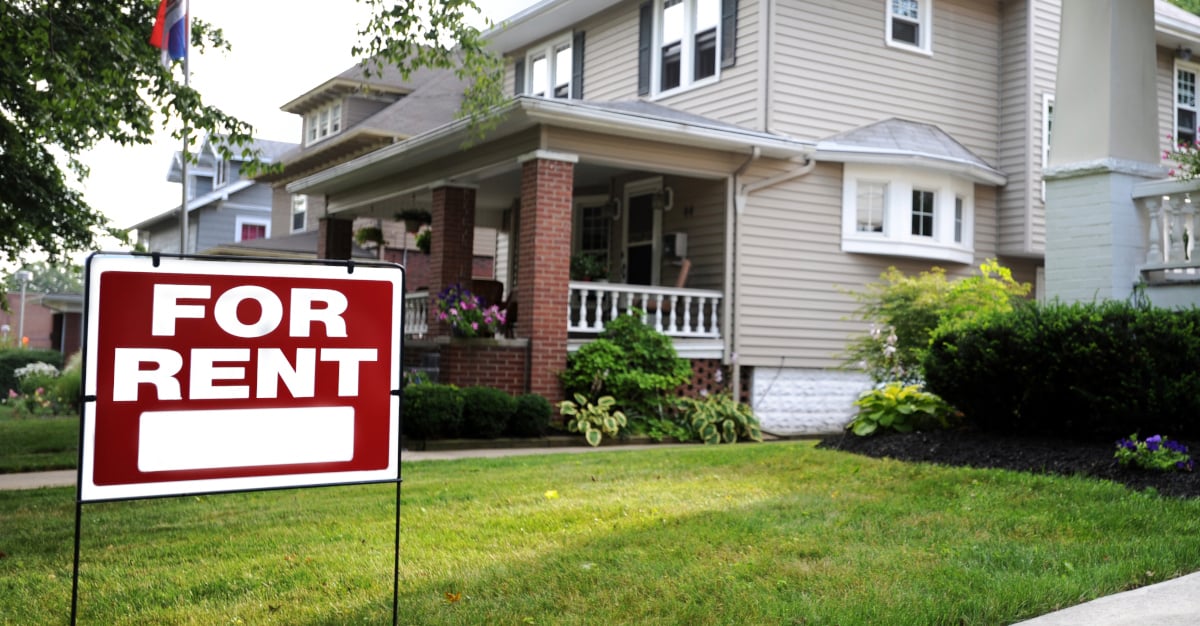Single-family real estate investors are usually good with numbers – they have to be in order to achieve success in the real estate investment business. The math equation going into every real estate investment is paramount to profitability – which makes it easy to get fixated on finding the lowest possible interest rate (especially when interest rates are high), and potentially overlook the signs of a wily lender attempting a bait-and-switch.
Suspicious you’re not getting the deal that got you to walk in the door? Here are the telltale signs your private lender does not have your best interest in mind, and how to avoid the bait-and-switch trap:
Signs Your Private Lender Is Pulling A Bait-and-Switch
Topics: Fix-and-Flip Financing Tips, Fix-and-Flip Lenders, real estate investing, Private Money Lenders
Networking is an essential skill for success in any industry. For house flippers, it can open doors to new opportunities, partnerships, and perspectives that can help you scale your business. (Even when interest rates are high!) Business cards and social media groups are a good start – but the following underused strategies will give you an edge over the competition.
Topics: Fix-and-Flip Financing Tips, Fix-and-Flip Lenders, Property Investment Strategies, real estate investing
Questions to ask when choosing a rental property loan
Demand for affordable housing remains high, which is good news for single-family real estate investors across America. As the single-family rental (SFR) industry continues to mature and become more institutional across the board, many investors are opting to keep their flips as rental properties.
The steps to fix-and-flip and fix-and-hold are similar, but there are important things to consider as you build a rental portfolio. You’ll want to answer some strategic questions on your journey to building long-term wealth.
Should I Choose a Fixed or Adjustable Rate?
After nine consecutive rate hikes by the Federal Reserve since March 2022 and a Fed Funds rate over 5%, every investor in America is acutely aware of interest rates and the impact they can have on their investment. For the SFR investor looking for the right financing solution for a rental property, there are two options: a mid-term or long-term approach.
The mid-term solution comes in the form of a 5, 7, or 10-year interest-only, adjustable-rate mortgage (ARM). The benefits of a mid-term solution are two-fold: 1.) You only pay interest on the principal balance of the loan, which means cashflow is higher than that of a fully amortizing loan, and 2.) You have a window of time to assess long-term interest rates and plan for the day when you ultimately lock in a long-term 15 or 30-year financing solution. The risk of an ARM is that long-term interest rates move higher than your existing interest rate during the 5, 7 or 10-year window and you get stuck in a negative leverage situation.
The long-term solution comes in the form of a 15 or 30-year fully amortizing, fixed rate mortgage. The benefits of the long-term solution are also two-fold: 1.) You have certainty of what your mortgage payment will be over the long-term, regardless of what happens in the interest rate market, and 2.) At the end of the financing period, the asset will be free and clear of all debt while still providing a steady stream of cashflow. The downside of a long-term solution is that these mortgages typically come with hefty pre-payment penalties over the first five years of the mortgage period, which makes it more costly if you want to refinance the asset as/if long-term interest rates move down during that five-year period.
Topics: Fix-and-Flip Financing Tips, Fix-and-Flip Lenders, Property Investment Strategies, real estate investing
Smart moves when interest rates are high
Is your stomach turning every time the Fed raises their rates? You’re not alone. America is facing an affordable housing crisis; demand for affordable housing is high, but the high interest rate environment created by the Fed is producing gridlock when it comes to supply. You may be thinking it’s a good time to circle the wagons and wait out the storm. A defensive stance like so is not uncommon in times of economic uncertainty. But if history has a way of repeating itself (and it does), then now is the time to hunt for opportunity.
Topics: Rental Property Investment, House Flipping Market Insights, Investment Property Strategies, real estate investing
Beware the down (down payment, that is!)
Down payments are typical in private lending. Real estate investors usually accept down payments as a necessary part of financing their rehab, focusing instead on finding the lowest rate. But your down payment has a huge impact on your business. Down payments leave you cash poor in a cash intensive game.
Topics: Fix-and-Flip Financing Tips, real estate investing, Private Money Lenders
When choosing a lender, most real estate investors don’t put much thought into the origin of the lender’s source of capital—or whether they sell their notes. But choosing a balance sheet lender goes a long way in your ability to control your own destiny. In the words of Rick Morgan, Chief Investment Officer at Residential Capital Partners, “If your lender is selling your loan to Wall Street, you’re not a customer—you’re a trade.”
Topics: Property Investment Strategies, real estate investing
5 Common mistakes seasoned real estate investors make
Seasoned investors have much to be proud of—and a lot to protect. With numerous deals behind you and the balance sheet to prove it, it can be tempting to loosen the reins of your underwriting standards, lose discipline when pulling comps, or believe your success will prevent you from failure. It’s easy to forget the very fundamentals of house flipping that helped you build your business, but to be the best at anything takes continued diligence, even at the height of your game.
Over the last 15 years of serving the SFR industry, these are the most common mistakes we see made by seasoned real estate investors.
1. Falling In Love With the Deal
Sometimes investors will stretch to buy a property when a more disciplined version of themselves would have passed because the potential profit margin was just too thin. An all-in budget of 65-70% of the ARV is what brought them to the dance. But, in a seller’s market, they stretch to 75-80% of the ARV, because they fall in love with the deal. Throwing caution to the wind, they wind up eating it when any number of small mistakes erodes their flimsy margin.
Stick to your discipline of not being in the deal too high. There’s always another deal coming down the path.
2. Staying Married to a Deal
No matter how good your rehab turns out, there are market factors outside your control. Interest rates may rise, taxes and insurance may go up, inflation may push materials to levels you never expected. As a seasoned investor, you know this well. And yet, even as a market softens, the seasoned investor can hold onto a deal that he or she knows should be blown out and sold fast.
Topics: Property Investment Strategies, real estate investing
What Does the Affordable Housing Crisis Mean For Real Estate Investors?
Unless you’re investing from under a rock, you’ve probably read the headlines: affordable housing in the US is hard to find right now—both for the typical homebuyer and real estate investors. It may be tempting to sit this season out until interest rates start to come down and inventory becomes more abundant, but this is exactly the right time to maximize your profits for both fix-and-flips and single-family rentals.
To make the most of this competitive market, first learn the factors at play causing the crisis and then take stock of the opportunities at your feet: fix-and-flips, rentals, and re-fis.
What’s driving the affordable housing crisis?
The latest research on the 2023 affordable housing crisis by the National Homebuilders Association shows that 64.5M out of 123.5M total American households are able to afford a $250K home. Another 39M can afford a $150K property. The kicker is that the median price of a new single-family home is just over $425K, a price out of reach for 73% of households in the US. Add in the high cost of land, lumber, materials and manufacturing issues still rippling forward from 2020, and you begin to understand why the gap between what US households can afford and what builders can deliver is, in fact, a crisis.
Likewise, high interest rates are keeping families from moving out of their starter homes. Just five years ago, a couple could buy a starter home for $250-$300K, live in it for a year or two while they raised some money for a down payment on a bigger house, maybe worth $450K. But the fed keeps hiking up interest rates, which means mortgage lenders are hiking theirs too, which means the average US homeowner can’t afford the bigger, more expensive house. They’re staying put.
So the supply of available homes available is tightening while the demand has remained the same or increased. Inventory is tight.
Topics: Property Investment Strategies, real estate investing
What Fix-And-Flip Loan Terms Really Mean
The terms of fix-and-flip private loans can differ from lender to lender, and sometimes even deal to deal. (Sadly, the bait-and-switch method still lives on in private lending. Luckily, our terms never change.) It’s a frustrating task to try and create an apples-to-apples comparison of loan terms, which is why sometimes investors eschew much of the information about their loans to focus on a single element: interest rate. But interest rates are only one influencing factor in the overall cost and quality of your loan. It’s mission-critical to understand each line item of your terms and know exactly how much you’ll have to bring with you on closing day (ideally… as little as possible!).
To understand the big picture, let’s unpack the most common terms written into a fix-and-flip private loan, and their impact on your ROI.
Amount Funded
It’s always a good day to get a check in the mail (or transfer to your account) from your rental properties. Your net cash flow is the money you get from your tenants, minus expenses and your loan payment.
Example: You purchase a $120,000 rental home. Tenants pay you $1,200 monthly. If your expenses and loan are $1,100, your net cash flow on a monthly basis is $100. Granted, $1,200 a year isn’t a large chunk of change. It’s more like the cherry on top of the other ways rental properties make you money. Compare it to the dividend of a stock; it’s likely not your primary reason for the investment, but it sure doesn’t hurt.
Related: Learn tips and tricks on calculating ARV from Michael Blatney, Portfolio Underwriting Manager.
Topics: Fix-and-Flip Financing Tips, Fix-and-Flip Lenders, Property Investment Strategies, real estate investing
5 Ways Rental Properties Make You Money
5 WAYS RENTAL PROPERTIES MAKE YOU MONEY (AND WHY YOUR REAL ESTATE PORTFOLIO NEEDS DIVERSITY)
There are many reasons today’s most prolific real estate investors are gobbling up single family rentals: Home values are rising. The dollar is shrinking. The construction of single-family properties hasn’t caught up with demand. More American families can only afford—or find—rental properties. But rentals aren’t just a trendy way to invest into today’s market—they’re a long term money maker. And the return on investment for rentals is likely higher than you’d expect, thanks to the multiple ways this investment pays you back.
Here are the five ways you can expect a return on your investment with rental properties:
1. Mailbox Money
It’s always a good day to get a check in the mail (or transfer to your account) from your rental properties. Your net cash flow is the money you get from your tenants, minus expenses and your loan payment.
Example: You purchase a $120,000 rental home. Tenants pay you $1,200 monthly. If your expenses and loan are $1,100, your net cash flow on a monthly basis is $100. Granted, $1,200 a year isn’t a large chunk of change. It’s more like the cherry on top of the other ways rental properties make you money. Compare it to the dividend of a stock; it’s likely not your primary reason for the investment, but it sure doesn’t hurt.
Topics: Property Investment Strategies, real estate investing












